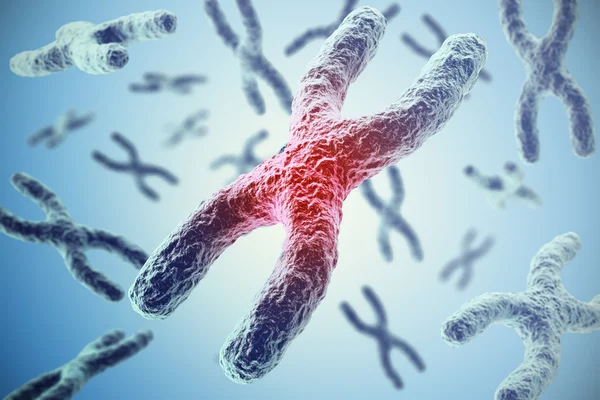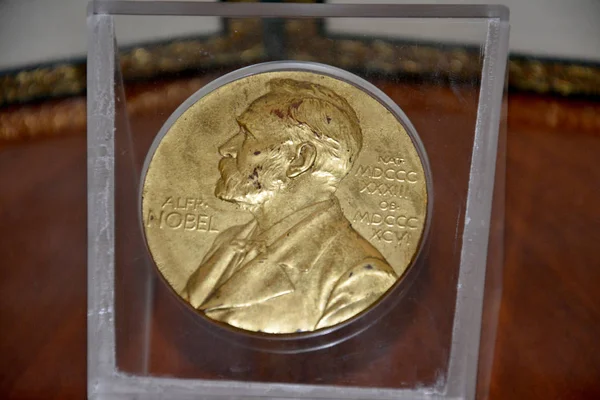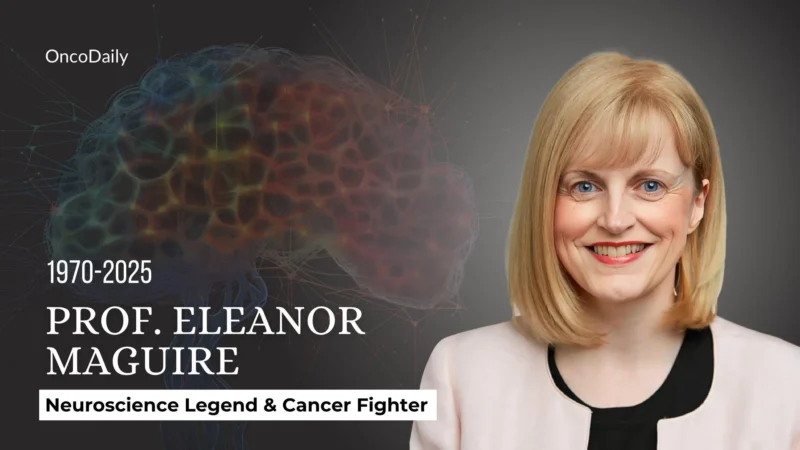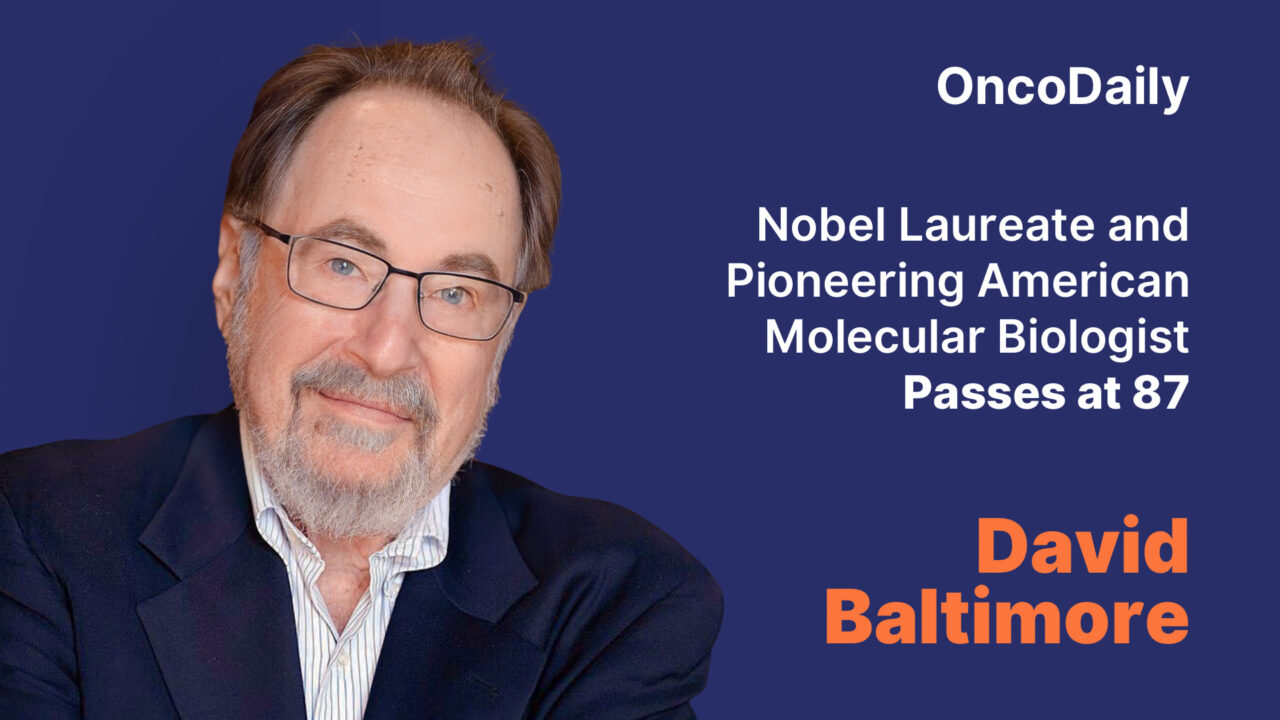In 2025, Nobel laureate David Baltimore, one of the most influential figures in molecular biology, faced a deeply personal challenge, a diagnosis of cancer. The scientist who once uncovered how viruses rewrite genetic instructions now confronted a disease that disrupts the body’s own molecular code.
David Baltimore’s discovery of reverse transcriptase, which earned him the 1975 Nobel Prize in Physiology or Medicine, transformed modern genetics and medicine. His pioneering research laid the foundation for breakthroughs in HIV therapy, cancer biology, and gene therapy. As president of Caltech and founder of the Whitehead Institute, he mentored generations of scientists and drove forward some of the most important discoveries in biomedical research.

Photo: Depositphotos
Baltimore passed away on September 6, 2025, at the age of 87. His story stands as a powerful reminder of courage and humanity, that even those who helped unlock the secrets of life are not exempt from its deepest challenges.
David Baltimore’s Final Battle: A Scientist’s Fight Against Cancer
David Baltimore, a towering figure in molecular biology, faced a profound personal challenge at the end of his life, his battle with cancer. Although specific details regarding the timing, type, and stage of his cancer diagnosis have not been widely disclosed, it is known that Baltimore passed away on September 6, 2025, at the age of 87, due to complications from multiple cancers.
Baltimore’s diagnosis and subsequent fight with cancer occurred late in his distinguished career, following decades of seminal contributions to science and leadership in biomedical research. His scientific legacy includes pioneering work on retroviruses, cancer biology, and immunology, which ironically informed many advances in cancer treatment and immunotherapy.
In the context of his advanced age and lifelong dedication to studying disease mechanisms at the molecular level, his cancer journey adds a human dimension to the life of a man who transformed our understanding of how viruses and cancer operate. The courage with which Baltimore confronted his illness shines in contrast and harmony with his professional achievements, offering an inspiring narrative of resilience.
David Baltimore’s Early Life and Scientific Contributions
David Baltimore was born on March 7, 1938, in Manhattan, New York. Raised initially in Queens, he developed an early interest in biology during a high school summer research program at the Jackson Laboratory in Bar Harbor, Maine. Baltimore completed his undergraduate studies at Swarthmore College in 1960, earning a bachelor’s degree with high honors in chemistry. He then began graduate work in biophysics at the Massachusetts Institute of Technology (MIT) but soon shifted to animal virology, moving to Rockefeller University where he completed his PhD in 1964. His doctoral work focused on virus replication and RNA synthesis, laying the foundation for his future discoveries.
Baltimore’s key scientific breakthrough came with his independent discovery of reverse transcriptase in 1970, an enzyme that transcribes RNA into DNA, challenging the central dogma of molecular biology. This work, which he shared with Howard Temin and Renato Dulbecco, earned him the Nobel Prize in Physiology or Medicine in 1975. His discovery revolutionized virology and molecular genetics, underpinning essential research into retroviruses, cancer, and HIV/AIDS.

Photo: Depositphotos
Beyond his laboratory achievements, Baltimore held significant leadership roles. He was a faculty member at MIT for over two decades and co-founded the Whitehead Institute for Biomedical Research, fostering innovative biomedical studies. Later, he served as president of Rockefeller University (1990–1997) and the California Institute of Technology (1997–2006). Throughout his career, Baltimore also played an influential role in science policy, advocating for research funding, ethical scientific practices, and biotechnology development.
Pioneering Work and Legacy in Cancer Research
David Baltimore’s groundbreaking contributions fundamentally transformed the fields of cancer biology and viral oncology. His 1975 Nobel Prize-winning discovery of reverse transcriptase overturned the established central dogma of molecular biology by demonstrating that genetic information could flow from RNA back into DNA. This revelation provided critical insight into how tumor viruses interact with the genetic material of host cells, laying the scientific foundation for understanding viral oncogenesis and retroviral infections such as HIV.
Baltimore’s research extended beyond this discovery to explorations of how viruses induce cellular transformation, a key process in the development of cancer. His laboratory identified molecular mechanisms regulating immune system gene expression and the role of oncogenes in cancer progression. Notably, work conducted under his guidance contributed to the development of targeted cancer therapies, including the cancer drug Gleevec, which marked a new era of precision medicine by targeting specific oncoproteins.
As a mentor and leader, Baltimore shaped the careers of numerous scientists who became influential figures in cancer research, immunology, and molecular biology. He co-founded the Whitehead Institute for Biomedical Research, which quickly rose to global prominence under his direction, fostering innovative research that bridged basic science and clinical applications. Through his vision and dedication, Baltimore played a pivotal role not only in advancing cancer science but also in training the next generation of cancer researchers.
Public and Scientific Community Reactions
The death of David Baltimore on September 6, 2025, at the age of 87, was met with widespread mourning and tributes from the scientific community, institutions, and the public worldwide. Colleagues and institutions remembered him as one of the most influential molecular biologists of his generation, whose transformative discoveries fundamentally reshaped biology and medicine. Caltech President Thomas F. Rosenbaum described Baltimore’s career as “an extraordinary intellectual life,” highlighting his groundbreaking work and his role as a mentor and leader who inspired generations of scientists.
Scientific organizations, including the American Association for Cancer Research (AACR) and the Whitehead Institute, paid homage to Baltimore’s pivotal contributions to virology, immunology, and cancer research. His discovery of reverse transcriptase was hailed as a monumental breakthrough that not only challenged existing biological dogma but also paved the way for advances in retroviral research and gene therapy. Leaders in the field recognized his unique ability to bridge fundamental science with clinical applications, driving forward cancer research and biotechnology.
Tributes also emphasized Baltimore’s personal qualities: his intellectual curiosity, generosity as a colleague, and courage in challenging established scientific paradigms. His influence extended beyond the laboratory to shaping science policy and ethical frameworks, especially regarding recombinant DNA research and the AIDS epidemic.
Public tributes celebrated Baltimore not only as a towering scientist but also as a profound human being who faced his final illness with dignity. His story of lifelong dedication to understanding disease mechanisms now resonates as an inspiration for cancer researchers, patients, and the broader public alike.
Honoring a Legend: OncoDaily’s Tribute and Condolences
OncoDaily editorial team extends its deepest condolences on the passing of Dr. David Baltimore, a visionary scientist whose pioneering work revolutionized molecular biology and cancer research. His groundbreaking discovery of reverse transcriptase laid the foundation for vital advances in understanding viral oncology and developing innovative cancer treatments. Beyond his remarkable scientific achievements, Dr. Baltimore inspired generations of researchers and contributed immensely to the progress of biomedical science.
You Can Also Read Eleanor Maguire: Honoring Her Legacy and Brave Battle with Spinal Cancer by OncoDaily

Written by Aharon Tsaturyan, MD, Lead of OncoDaily Volunteers, Editor at OncoDaily Intelligence Unit.
FAQ
Who was David Baltimore and why is he famous?
David Baltimore was an American molecular biologist and virologist, widely regarded as one of the most influential scientists of his generation. He is best known for discovering reverse transcriptase, an enzyme critical to understanding how certain viruses replicate, which earned him the Nobel Prize in Physiology or Medicine in 1975.
What was David Baltimore’s Nobel Prize-winning discovery?
Baltimore independently discovered reverse transcriptase in 1970, an enzyme that synthesizes DNA from RNA. This finding challenged the central dogma of molecular biology by demonstrating that genetic information can flow backward from RNA to DNA, a key process exploited by retroviruses like HIV.
How did David Baltimore’s research impact cancer and HIV treatment?
His discovery provided critical insight into how tumor viruses infect cells and cause cancer. It paved the way for molecular studies of HIV and the development of antiretroviral drugs. Baltimore’s work also influenced cancer biology by elucidating viral mechanisms of oncogenesis and contributed to advances in targeted cancer therapies.
When was David Baltimore diagnosed with cancer?
Specific details on the timing of Baltimore’s cancer diagnosis have not been publicly disclosed. However, it is known that he confronted cancer late in his life, passing away at age 87 in September 2025 due to complications from multiple cancers.
What type of cancer did David Baltimore have?
The exact types of cancer Baltimore battled have not been publicly detailed, but reports mention multiple cancers contributing to his passing.
How did David Baltimore contribute to molecular biology beyond his discovery?
Baltimore’s research spanned virology, immunology, and cancer biology. He elucidated molecular mechanisms regulating immune gene expression and cellular transformation, co-founded the Whitehead Institute for Biomedical Research, and served as president of Rockefeller University and Caltech.
What leadership roles did David Baltimore hold in science and academia?
He served as a professor and researcher at MIT, founded and directed the Whitehead Institute, and was president of Rockefeller University (1990–1997) and the California Institute of Technology (1997–2006). He also influenced science policy and biotechnology development.
How has the scientific community reacted to David Baltimore’s death?
His death in 2025 was met with worldwide mourning and tributes, praising his groundbreaking contributions and mentorship. Institutions like Caltech, AACR, and the Whitehead Institute highlighted his transformative impact on biology and medicine.
What is reverse transcriptase and why is it important?
Reverse transcriptase is an enzyme that uses RNA as a template to synthesize DNA, reversing the typical flow of genetic information. It is essential for the replication of retroviruses and has been instrumental in molecular biology research and therapies, including HIV treatment and gene therapy.
How did David Baltimore influence the next generation of cancer researchers?
Through his scientific leadership and mentoring, Baltimore trained many future leaders in cancer research and molecular biology. He fostered innovative research environments at the Whitehead Institute and impacted cancer biology by bridging basic science with clinical applications.


